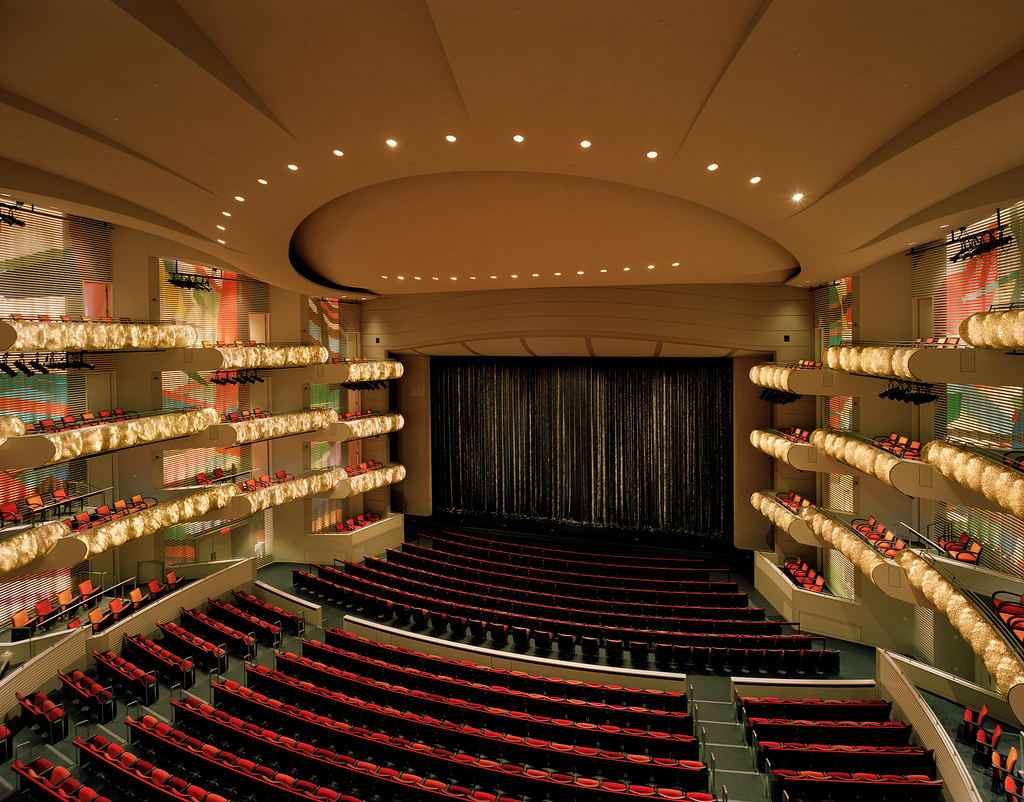Mozart, Money Problems, and Voltaire
Aaron and I spent the evening at the Kansas City Symphony, with Rameau’s Suite from Dardanus, Mozart’s Number 31, and the Fauré Requiem on the program, all conducted by Bernard Labadie. The first two, particularly, were marvelous, especially from our seats (we were in the center, third row).*
As Mozart’s “Paris Symphony” reverberated throughout the hall, I was struck by the fact that I was sitting here, in the year 2013, listening to a piece of music composed 235 years ago in 1778 by a then-22 year old man who happened to have one of the greatest musical minds humanity ever produced. More interestingly, he had composed this particular work primarily because he was having financial difficulties. He decided to write something flashy – with far larger orchestration than usual at the time – so he could impress the right folks, landing a job in the French capital. He knew that another paycheck would put some cash back into his ever-strained pocketbook due to a chronic habit of overspending that often left him miserable when it came to his own affairs. This period of stress was also occurring while his mother was dying.
Expensive clothes, fine instruments, nice working spaces, beautiful objects – Wolfgang wanted it all, never learning from the much wiser philosopher Voltaire, who died that same year and ran in the same circles.
Voltaire had wanted the same trappings of wealth but he was a far more intelligent man than the composer. He reverse engineered the process of building wealth, applied his considerable brain power to it, amassed a fortune, then lived off his dividends, interest, and rents for the rest of his life, allowing him to focus on doing what he loved.
Mozart would never deign to study Voltaire’s methods or seek his advice, largely, it would seem, because he considered Voltaire’s atheism a personal affront, writing, “Friends who have no religion cannot long be my friends”. Thus, the musician rejected the opportunity to seek council from a man in almost every notable way his superior simply due to a difference in dogma. In fact, when the legendary thinker passed away, Mozart wrote, “The ungodly arch-villain, Voltaire, has died like a dog.”
Talk about the horns effect clouding judgment.
That arrogance, coupled with the fact that both Mozart and his wife were incorrigible profligates, meant the man who was at one time Europe’s leading artist spent his dying days being sued by his friends for debts that amounted to twice his annual income, and penning letters describing his constant worry over being completely, totally broke.
What a terrible way to live life; constantly consumed by thoughts of money, worrying about how you are going to keep the heat on in the winter or food on the table. That’s how he died – in a state of never-ending dread over the fiscal condition of his family. He never learned that you can either master money, or it will master you. The state of one’s flocks cannot be ignored indefinitely.
* Fun fact for the fellow Berkshire Hathaway shareholders out there: The home of the Kansas City Symphony is named Helzberg Hall because 1.) a large chunk of the money to build it came from the Helzberg family, who sold their chain of jewelry stores to Warren Buffett’s conglomerage back in 1995 and 2.) Shirley Bush Helzberg recently ended her 18-year tenure as the Chair of the Symphony Board, setting a record among American symphonies. She helped raise the investment endowment to $30 million so the symphony would be financially stable. The hall itself is inside the beautiful new Kauffman Center for the Performing Arts (the opera is in one half, the symphony in the other). They’ve done a lot for the Kansas City area, including funding a local business school to create the Helzberg MBA program. They are a wonderful case study of how to build a fortune, enrich a lot of people along the way, create jobs, live very well for your own family, then return most of the benefits to society.

Helzberg Hall, in the new Kauffman Center for the Performing Arts, is home to the Kansas City Symphony. This is where we were tonight. Click to Enlarge.

The exterior of the Kauffman Center for the Performing Arts … Here is another picture of the building. It’s one of the best designed complexes I’ve ever seen – even the parking is well arranged and efficient.

The opera company is housed in the Kauffman theater, which is adjacent to Helzberg Hall. This is where we saw The Magic Flute a couple of weeks ago.


